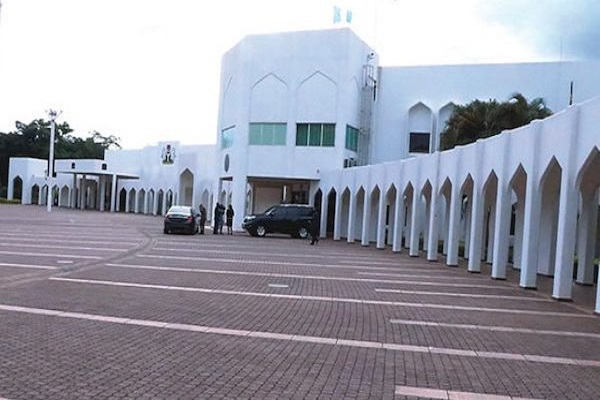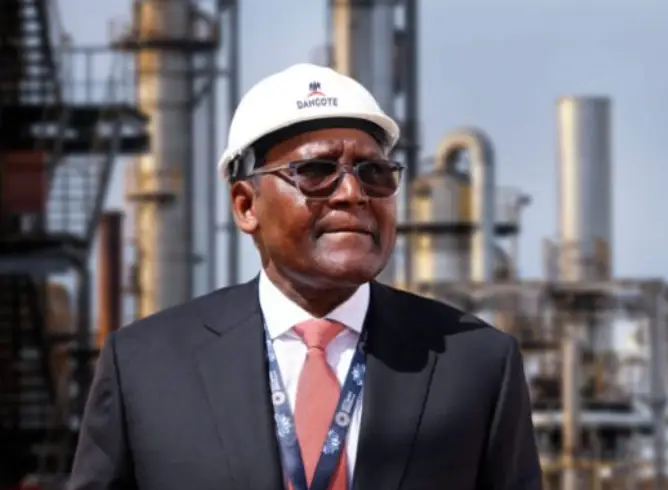As Nigeria celebrates its 60th Independence, Nigerians have scored the President Muhammadu Buhari-led administration high in rescuing the country from precipice of destruction.
A cross section of Nigerians in the Southwest states and Kwara assessed the administration based on its nine-point agenda.
They said that the government’s sincerity of purpose was evident in the giant strides of provision of infrastructure including roads, housing, rail system of transportation, schools and hospitals.
The respondents, however, urged the government to spend the remaining three years of the administration to tackle unemployment, revive the economy and combat insurgency and other security challenges facing the country.
Mr Abayomi Arabambi, the Chairman, Labour Party in Ogun, said that the priority areas as highlighted by the Buhari government had proved the focus and competence of the government in convincing the citizenry that it had sufficient and adequate ability to build a thriving and sustainable economy.
Arabambi said that the nine points agenda would enhance social inclusion and reduce poverty and also pave way for enlargement of agricultural output for food security and export.
The labour party chieftain noted that the nine priority areas identified by present administration to guide its policies over the next few years in its drive to enhance national development was a step to build a thriving and sustainable economy.
He said that the Buhari government had been able to engage a very large percentage of unemployed youths in various arms of self-employment including sectors in various agricultural operation and investments.
“The truth is that all of the priority areas are very much inter- dependent and very highly complimenting each other.
“Today, even youths are proud owners of large farms and recognised employers of labour.
“In every worthwhile assessment of the capability of this government, it has come up convincingly to let the unbiased critic see that the tilt of good governance of this government is in the positive and in the altitude,” he said.
He appealed to the president to continue building a system that would continue to fight corruption, expand access to quality education and provide affordable healthcare services.
“Currently, a lot of visible and verifiable great work has been done by the Buhari-led government to correct the corruption – induced mal-administered power projects in the country and very many other projects.
“In a fair and reasonable consideration of the national standard in governance of this country, it is not in doubt that in every sector, the current Federal Government has outclassed the performances of any previous governments.
Also speaking on the nine priority areas identified by the government, Mr Azeez Adeyemi, the National Public Relations Officer, National Association of Nigerian Students, said that sincerity of purpose should come first on the list.
Adeyemi listed security, agriculture and corruption as the critical areas the government should channel its resources.
He said that the insecurity situation in some parts of the country needed urgent attention of the government, saying that lives and property were at risk in such areas.
He said that the Nigerian security system needed complete overhaul, saying that government should intensify efforts in shaping the security system to curtail the excesses of kidnapping, banditry, and other inhumane vices.
He also called on the present administration to take agriculture serious with the provisions of basic agricultural inputs and encourage youths to participation in the sector.
Adeyemi said that corruption had continued to be a major obstacle hindering the growth and development of the nation.
“The government should focus more on the processes that lead to corruption rather than waiting for a leader to be pronounced corrupt after terms of office.
Also, Mr Sunday Bamidele, a sociologist, scored the administration of Buhari high in the areas of transport and infrastructural development.
Bamidele, who spoke with NAN in Akure, described the development of the railway system as a very significant landmark which could not be wished away by anybody.
He said that the present administration met a moribund railway system and a very bad road network which had had been neglected by successive administrations.
The sociologist, who commended Buhari for bringing the Abuja-Kaduna railway to life said “this alone has brought ease and comfort to people travelling on that axis on daily basi.
“Modern trains, which are of standard gauge with executive coaches, now convey passengers on this route to make the journey stress-free.
“Different road projects have been concluded while some are ongoing. Reconstruction of the inherited Niger bridge project at Onitsha in Anambra state has been embarked upon, and work has never stopped on the project.
“To add another feather to the cap of his administration is the ongoing rail transport system between Lagos and lbadan which is to be commissioned towards the end of this year,” he said.
Bamidele, however, noted that the government had not done enough in the area of security.
“The government needs to rise up to its responsibilities by reinforcing the security system of the country so that we can sleep with our two eyes closed,” Bamidele said
Mr Temitope Fakuade, the Deputy Director, Planning, Ondo State Ministry of Economic Planning and Budget, said the success of the nine-point agenda of the government depends on the political will of the current administration to see the plans come through.
Fakuade said that successive administration had initiated many plans in the past but the challenge was with the execution.
According to him, result based monitoring and evaluation mechanism should be put in place to ensure that everything is done right from the conceptualisation of idea to execution stage to achieve result from the agenda,
Dr Michael Oke of the Department of Banking and Finance, Ekiti State University, Ado Ekiti, however, expressed concern that the nine-point agenda of the Federal Government might not see the light of the day.
Oke said that many national agenda had been hatched in the past without fulfilling their aims and objectives.
He identified inconsistency and insincerity of purpose as causes of failure of the government in the series of national growth plans.
According to him, successive governments lack political will to execute their plans.
He said that discontinuity and divergent policies had made successive governments to perform drastically below expectations.
Oke said that Nigerians had lost confidence and trust in their leaders, having been betrayed and disappointed for too long.
He, therefore, urged the current administration at the centre to leave good legacies behind that would rekindle Nigerians’ hope.
Also, Prof. Abdulrazaq Oniye, the Chairman, Association of Model Islamic Schools in Ilorin, Kwara, called for investment in technology and adequate budgetary allocation to education sector to achieve quality education in the country.
Oniye said that the world had gone digital, hence education should be immersed in technology with huge investment by the government.
He said the investment should be in terms of knowledge acquisition and needed infrastructures.
The Commissioner of Police in Kwara, CP Kayode Egbetokun, called on government at all levels to provide equipment and other logistic for the police and other security agencies in the country.
Egbetokun, who spoke through his Police Public Relations Officer, ASP Ajayi Okasanmi said that before any development could take place in society, there must be peace, security and justice.
He said that government’s primary duty was to ensure that it provided adequate security for the lives and property of its citizens for the economy to thrive.
“We need complete orientation of mindset of people to be able to fight war against corruption.
“If people change their belief about money, that if you have it you have everything, fighting against corruption will be easy and our economy will thrive.’’
Also speaking on the Federal Government’s nine-point agenda, the All Farmers Association of Nigeria (AFAN) Chairman in Oyo State, Mr John Olateru said that farmers should be engaged at the state level and not national.
Olateru told NAN in Ibadan that the cost of cultivating a hectare of land should be in a transparent manner and determined at the state level and not national.
He said the CBN should revert to how it was handling the Anchor Borrowers Programme before, whereby farmers assess the input materials first to check the quality of the materials being distributed to them.
The Oyo AFAN Chairman alleged that the cost of the inputs the CBN distributed to farmers was far more expensive than what the average farmer would buy in the local market.
He urged the CBN and government agencies to release funds and inputs to farmers at the appropriate time just as he underscored the need for the government to fast track the inauguration of the Commodity Exchange Board in the country.
According to Olateru, this will tackle the challenges of off-taking that farmers are facing.
Similarly, Pastor Benjamin Akanmu, the former Chairman, Christian Association of Nigeria (CAN) in Oyo State, urged the government to tackle the problem of unemployment.
According to him, the high level of unemployment in the country is a cause for concern particularly in view of the attendant rise in criminality.
Akanmu said that the government should ameliorate the suffering of the citizens by deeming it fit to reduce the price of petroleum products and electricity tariff.
Mr David Adelodun, a community leader in Ado-Ekiti, Ekiti, said the present administration’s nine-point agenda had no impact on the wellbeing and welfare of the generality of the citizenry.
“With the skyrocketing prices of food items and other consumables, the purchasing powers of many Nigerians have been drastically reduced.
“The government agriculture policy are well thought-out but failed to address the food insufficiency and hunger that had pervaded our environment,” he said.
Miss Deborah Bamidele, an undergraduate said the agenda had done little to address the economic downturn and the high rate of unemployment.
Meanwhile, the Executive Director of Gender Relevance Initiative Promotion (GRIP), Mrs Rita Illevebare said that gender equality represents the bedrock for sustainable growth, policies and development.
She said that to empower women was to emancipate the world, adding that this would bring about sustainable growth and the revitalisation of the society at large.
“It is important that we pursue national policies that encourage innovations, especially in our recent economic crises in order to ensure adequate wealth,’’ the gender advocate said.
Ilevebare said that the reinforcement of agriculture and services network that would help grow food and would also help to provide employment at the same time.
A political analyst, Kola Orodiran, in his contributions, urged the Federal Government to be sincere in the implementation of the nine-point agenda to make life better for Nigerians.
Orodiran, said that for the country to achieve a sustainable economy, the borrowed funds should be invested in the economy and the budgeted allocation to political offices should be reduced.
“When the Federal Government borrow to grow the economy, the welfare of Nigerians should be given utmost priority so as to eradicate poverty in all parts of the country,’’ the analyst said.
Orodiran also tasked the present administration to build refineries to reduce the incessant increase in prices of petrol.
Also, Bode Anjorin, an educationist urged the present administration to expand access to quality education, affordable healthcare and productivity.
He also appealed to the government to address the issue of incessant industrial actions and invest in the education sector of the country.
Mrs Lola Aluko, a legal practitioner, decried the level of insecurities in the country and called on the Federal Government to do more in the aspect of security as spelt out in the nine-point agenda of the administration.
Mr Babatope Adeyanju, a businessman said that local businesses should be encouraged and that indigenous entrepreneurs and professionals should be patronised so as to discourage reliance on foreign products.
He said that entrepreneurship and industrialisation should be the benchmark of “our national policies, particularly to assist the youths to be self-reliant’’.







